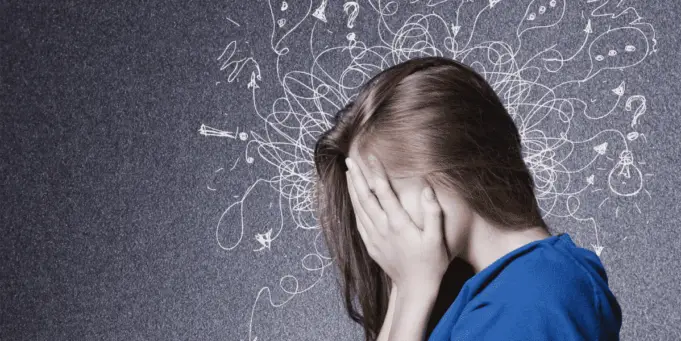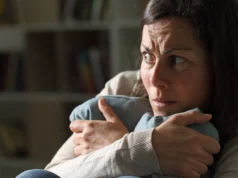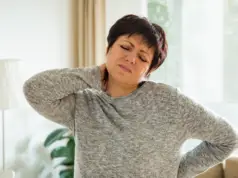Taking care of your mental health is one of the best things you can do for yourself. Your mental health is one of your greatest assets in life and yet, for those struggling with co-occurring mental illnesses, it can also be one of their greatest challenges. A SAMHSA survey from 2018 reveals that 9.2 million adults in the US suffered from co-occurring disorders. That number is likely to have increased dramatically during the past year due to the extreme life-changing circumstances the pandemic caused.
Mental Health Awareness
Our understanding of mental health struggles as a society has improved significantly over the past couple of decades. More people are aware of the importance and validity of focusing on your mental health.
This shift in perception came just in time. More people reported experiencing symptoms of anxiety and depression since the pandemic began. A study from June of 2020 showed 13% of adults reported new symptoms of depression or suicidal thoughts due to COVID-19 related stressors.
The pandemic caused an unprecedented upheaval of our lives that has impacted all age groups and people struggling with their mental health were particularly vulnerable. Many therapists’ offices shut down and left people unsure of how to go about getting the help they needed.
Alternative Treatments
Dealing with co-occurring mental illnesses can be a challenge at the best of times. Doing so during a pandemic where many of us experienced prolonged isolation led more people to try alternative therapeutic practices they could pursue at home.
Some of those alternatives include meditation, mindfulness, yoga, and a change in diet. There are proven benefits to these practices. If you’re looking for ways to help manage your mental illnesses then there’s no harm in trying some of these to see if they work for you.
Meditation
Meditation is a practice that has been around for thousands of years. It was originally used as a way to connect with the mystical forces of life but has since become a practice that allows people to manage their mental state.
There are so many positive benefits to meditation. It can help you gain a new perspective on your life or circumstances, manage mental and physical illnesses, and heal from trauma. Meditation can help you achieve these things because it is a treatment that combines your mental and physical health. While you’re meditating and focusing on your mental state it alters your physicality. Meditation can reduce your heart rate, blood pressure, and relieve tension in your body.
People may have preconceived ideas about what meditation is or how to go about it but there is no one correct way to meditate. There are guided meditations, mantras, transcendental meditation, tai chi, and more. Finding a practice that will help you achieve your specific goal and suits you personally is essential to finding success with this method.
Mindfulness
Living mindfully has become very popular in recent years. The idea behind mindful living is that you do everything with a purpose. Mindfulness teaches you to become more aware of all the sensations you’re experiencing in a moment without overreacting or judging yourself.
Some people consider mindfulness a form of meditation and others simply consider it a lifestyle. When you practice mindfulness it can be very similar to meditation if you choose. You want to focus on yourself, what you’re feeling, and how you’re reacting to any stimuli. It can be very revealing when you sit with yourself quietly and give yourself permission to just feel.
Others use mindfulness throughout their day. In fact, eating mindfully is one way that many people have changed their eating habits in order to benefit their physical and mental health. It can be particularly helpful for those who are struggling with co-occurring disorders that involve food. Eating disorders and anxiety tend to go hand-in-hand. Eating mindfully with intent and purpose can help you manage your anxiety and eating disorder symptoms.
Yoga
This is another practice that has been around for centuries. Yoga has been used ceremonially in the past but is now a well-known method for improving your overall health. Practicing yoga involves moving your body into different poses and breathing through that pose until you’re relaxed and comfortable.
There are many benefits to practicing yoga. It can improve your physical health by increasing your flexibility, lowering your blood pressure, improving symptoms of asthma and other illnesses, and reducing inflammation.
Yoga can also have a positive effect on mental health. It’s a practice that focuses on your mind and body simultaneously. These types of holistic practices are incredibly beneficial for those suffering with co-occurring mental illnesses. Oftentimes our mental health bleeds over into our physical health. Treating both at the same time will help ease symptoms of disorders like anxiety and depression. Improving symptoms of co-occurring mental illnesses reduces stress on the body and physical symptoms associated with that.
Therapy
Consulting a professional is the best thing to do when you’re struggling with co-occurring mental illnesses. A licensed therapist can properly diagnose you and come up with a treatment plan that is specific to your needs. If they determine that it’s necessary they can also refer you to a psychiatrist who can prescribe medications to help manage your symptoms.
There are a few different ways you can go about therapy. The most obvious is to see a therapist in person. There are also treatment facilities that focus specifically on treating people who are suffering from co-occurring mental illnesses. Going to a mental health center is ideal for someone who needs extra support managing their mental illnesses.
Virtual mental health services have become increasingly popular during the pandemic. You can connect and work with a trained therapist over a video call, phone call, or through a messaging platform. This will allow you to get the help you need without worrying about having to leave your home. It’s a convenient and effective option for therapy if you’re concerned about leaving your home during the pandemic.












